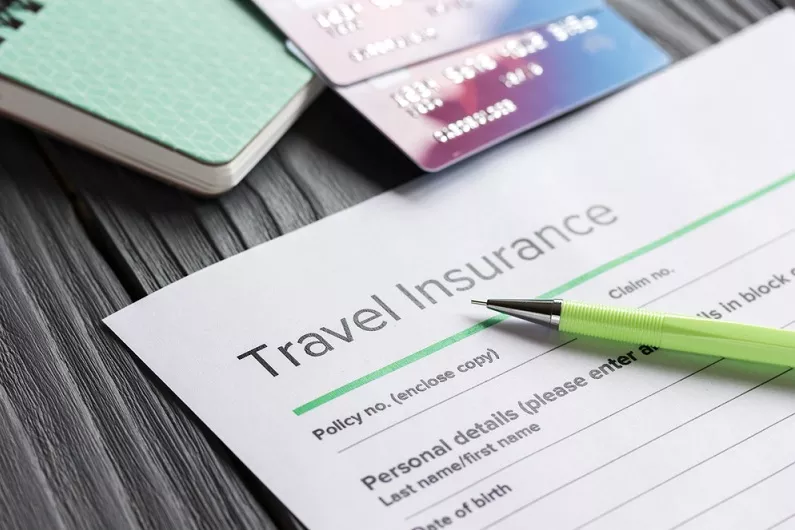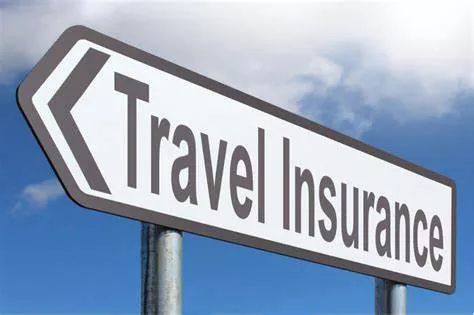When planning a trip, purchasing travel insurance is a critical step to ensure peace of mind and financial protection. Basic travel insurance offers essential coverage to protect against common travel risks. This comprehensive guide will delve into what basic travel insurance covers.
Why Travel Insurance is Important
Financial Protection
Travel insurance provides financial protection against unexpected events that could otherwise result in significant out-of-pocket expenses.
Peace of Mind
Knowing that you are covered in case of emergencies allows you to relax and enjoy your trip.
Emergency Assistance
Travel insurance often includes 24/7 emergency assistance, ensuring help is available whenever you need it.
Key Components of Basic Travel Insurance
1. Medical Emergency Coverage
Medical Expenses
Basic travel insurance covers medical expenses incurred during your trip. This includes doctor visits, hospital stays, and necessary treatments.
Emergency Medical Evacuation
If you require urgent medical attention and need to be transported to the nearest medical facility, this coverage ensures the costs are covered.
Repatriation of Remains
In the unfortunate event of death, this coverage takes care of the costs associated with returning the deceased to their home country.
2. Trip Cancellation and Interruption
Trip Cancellation
If you need to cancel your trip due to unforeseen circumstances such as illness, injury, or death of a family member, this coverage reimburses your non-refundable expenses.
Trip Interruption
If your trip is cut short due to covered reasons, this coverage reimburses the unused portion of your trip and any additional expenses to return home.
3. Baggage Protection
Lost or Stolen Baggage
Basic travel insurance covers the loss or theft of your personal belongings during the trip.
Baggage Delay
If your baggage is delayed, this coverage reimburses you for the purchase of essential items until your baggage arrives.
4. Personal Liability
Accidental Injury or Damage
If you accidentally injure someone or damage property during your trip, personal liability coverage protects you against legal expenses and claims.
5. Travel Delay
Additional Expenses
If your travel is delayed for a specified period due to covered reasons, such as severe weather or mechanical issues, this coverage reimburses you for additional expenses like accommodation and meals.
Benefits of Basic Travel Insurance
Affordable Coverage
Basic travel insurance is usually more affordable than comprehensive plans, making it accessible for budget-conscious travelers.
Essential Protection
It provides essential protection against common travel risks, ensuring that you are not left vulnerable during your trip.
Flexibility
Many insurers offer customizable plans, allowing you to add additional coverage based on your specific needs and preferences.
Understanding the Limitations
1. Coverage Limits
Maximum Payouts
Basic travel insurance policies come with coverage limits, which are the maximum amounts the insurer will pay for each type of coverage.
2. Exclusions
Pre-Existing Conditions
Most basic plans do not cover pre-existing medical conditions. You may need to purchase additional coverage for these conditions.
High-Risk Activities
Engaging in high-risk activities such as extreme sports may not be covered by basic travel insurance.
see also:Top 10 Best Tenant Insurance Companies
How to Choose the Right Basic Travel Insurance
1. Assess Your Needs
Travel Destination
Consider the medical costs and risks associated with your destination. Some countries have higher medical expenses, requiring higher coverage limits.
Trip Duration
Longer trips may require more extensive coverage than short vacations.
2. Compare Policies
Coverage Details
Carefully review the coverage details of different policies to ensure they meet your needs.
Cost
Compare the cost of different policies and find one that offers the best value for your budget.
3. Read Reviews
Customer Feedback
Look for reviews from other travelers to understand the reliability and quality of the insurance provider.
Claims Process
Check feedback on the claims process to ensure it is straightforward and hassle-free.
Common Questions About Basic Travel Insurance
1. What Does Basic Travel Insurance Cover?
Basic travel insurance typically covers medical emergencies, trip cancellations, trip interruptions, baggage protection, personal liability, and travel delays.
2. How Much Does Basic Travel Insurance Cost?
The cost varies depending on factors such as the trip duration, destination, and coverage limits. It is generally more affordable than comprehensive plans.
3. Can I Customize My Basic Travel Insurance Plan?
Yes, many insurers offer options to add additional coverage based on your specific needs, such as coverage for pre-existing conditions or high-risk activities.
4. Is Basic Travel Insurance Worth It?
For many travelers, basic travel insurance provides essential protection at an affordable price, making it a worthwhile investment.
Detailed Breakdown of Basic Travel Insurance Coverage
1. Medical Emergency Coverage
What It Includes
Doctor Visits: Reimbursement for visits to doctors and specialists.
Hospital Stays: Coverage for hospital room charges and associated medical expenses.
Medications: Costs of prescribed medications needed during your trip.
Emergency Evacuation: Transport to the nearest appropriate medical facility if needed.
Repatriation: Return of remains in the event of death.
Why It’s Important
Medical emergencies abroad can be costly. This coverage ensures that you receive necessary medical care without financial strain.
2. Trip Cancellation and Interruption
What It Includes
Non-Refundable Expenses: Reimbursement for non-refundable trip costs if you have to cancel for covered reasons.
Unused Trip Costs: Reimbursement for the unused portion of your trip if it’s interrupted.
Additional Expenses: Coverage for extra costs incurred to return home due to trip interruption.
Why It’s Important
Unexpected events can force you to cancel or cut short your trip. This coverage protects your financial investment in the trip.
3. Baggage Protection
What It Includes
Lost or Stolen Items: Coverage for personal belongings that are lost or stolen during the trip.
Baggage Delay: Reimbursement for essential items if your baggage is delayed beyond a certain period.
Why It’s Important
Lost or delayed baggage can disrupt your trip. This coverage ensures you can replace essential items and continue your journey smoothly.
4. Personal Liability
What It Includes
Legal Expenses: Coverage for legal fees if you are sued for accidental injury or property damage.
Compensation Claims: Protection against claims for compensation from the injured party.
Why It’s Important
Accidents can happen, and personal liability coverage protects you from the financial implications of injuring someone or damaging property.
5. Travel Delay
What It Includes
Accommodation: Reimbursement for hotel stays if your travel is delayed.
Meals: Coverage for meal expenses during the delay.
Additional Transportation: Costs of alternative transportation if needed.
Why It’s Important
Travel delays can result in unexpected expenses. This coverage ensures you are not out of pocket due to delays.
Additional Considerations When Choosing Basic Travel Insurance
1. Pre-Existing Conditions
Understanding Exclusions
Most basic travel insurance plans do not cover pre-existing conditions. It’s important to read the policy details and understand what is excluded.
Purchasing Additional Coverage
If you have pre-existing conditions, look for plans that offer optional coverage for these conditions.
2. High-Risk Activities
Standard Exclusions
Activities such as skiing, scuba diving, and other adventure sports are often excluded from basic coverage.
Adding Adventure Coverage
If you plan to engage in high-risk activities, consider adding adventure or sports coverage to your plan.
3. Policy Limits
Maximum Coverage Amounts
Each type of coverage within a basic travel insurance plan has a maximum payout limit. Ensure these limits are sufficient for your needs.
Understanding Sub-Limits
Some policies may have sub-limits for specific expenses, such as daily hospital charges. Be aware of these when reviewing your policy.
4. Emergency Assistance Services
24/7 Helpline
Most travel insurance plans include access to a 24/7 helpline for emergency assistance. This service can help with medical referrals, lost passport assistance, and more.
Importance of Accessibility
Having access to emergency assistance can make a significant difference in a crisis. Ensure your policy includes this service.
Tips for Making a Travel Insurance Claim
1. Document Everything
Keep Receipts
Keep all receipts and documentation related to your claim. This includes medical bills, travel itineraries, and any correspondence with service providers.
2. Report Losses Immediately
Notify Authorities
In case of theft or loss, report it to the local authorities immediately. Obtain a police report, as this will be required for your claim.
3. Contact Your Insurer
Inform Your Insurer
Contact your insurance provider as soon as possible to inform them of the incident and begin the claims process.
4. Follow Instructions
Submit Required Documentation
Submit all required documentation promptly. Follow the insurer’s instructions to ensure a smooth and timely claims process.
Conclusion
Basic travel insurance provides essential protection against common travel risks, including medical emergencies, trip cancellations, lost baggage, personal liability, and travel delays. Understanding what is covered and how to choose the right plan can help you make an informed decision. Whether you are planning a short vacation or an extended trip, having basic travel insurance ensures that you are prepared for the unexpected. By assessing your needs, comparing policies, and reading customer reviews, you can find the right coverage at an affordable price. Safe travels and peace of mind with basic travel insurance!





















